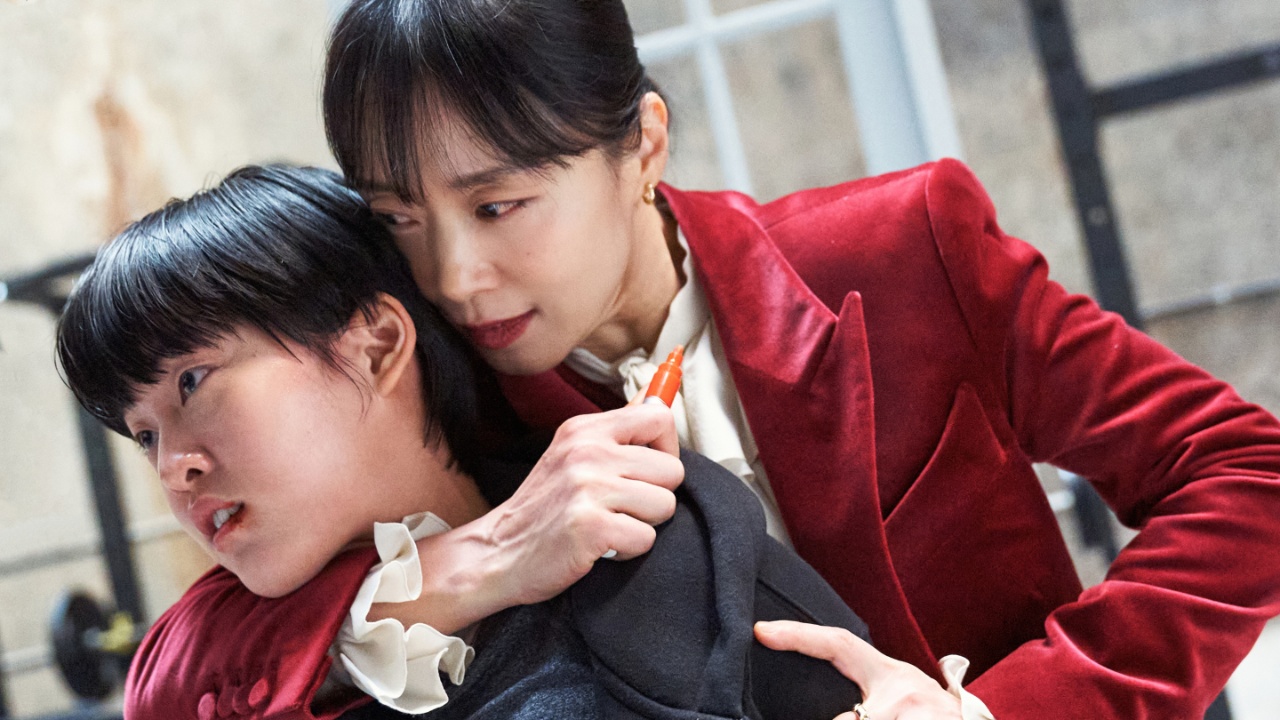Kill Boksoon is a Netflix action-thriller set in a hyper-stylized universe of professional assassins where killing is a regulated business, similar to the sleek brutality of John Wick. The film follows Gil Boksoon (Jeon Do-yeon), a top-tier assassin for MK Entertainment, who decides to take on one last mission before retiring to focus on her teenage daughter, Jae-young.
However, her final job goes awry, forcing her to confront both her employers and her own moral boundaries. What begins as a story of professional violence transforms into a tense exploration of loyalty, guilt, and motherhood amid relentless action and betrayal.
Boksoon Breaks Assassin Rules, Sparking Betrayal and Deadly Conflict Within MK Entertainment
Assassin agencies operate under three strict rules: no killing minors, only taking sanctioned jobs, and always attempting approved assignments. Boksoon, one of MK Entertainment’s elite grade-A assassins, works closely with her mentor and MK chairman, Cha Min-kyu, who once staged her father’s suicide.
Her final assignment is to stage the suicide of a senator’s son, but the mission tests her humanity. When Boksoon realizes the target is a young man trapped in political corruption, she refuses to kill him. This act of defiance breaks company protocol and sets off a deadly chain reaction. Her compassion, ironically, makes her a target in a business where emotions are dangerous weaknesses.

Boksoon’s rebellion shakes the foundations of MK Entertainment. Cha Min-kyu’s ambitious sister, Cha Min-hee, views Boksoon’s influence over her brother as a threat and manipulates lower-ranked assassin Han Hee-sung into carrying out the assassination of the senator’s son for personal gain. To secure her dominance, Min-hee announces an open bounty, offering any assassin a promotion if they kill Boksoon.
What follows is a series of intense confrontations, where Boksoon and the young intern, Kim Young-ji, fend off numerous attackers. Despite surviving the onslaught, Boksoon suffers a devastating loss when Young-ji is murdered by Chairman Cha to eliminate witnesses. This betrayal marks a turning point, transforming Boksoon from a loyal employee into a vengeful mother determined to destroy the system that betrayed her.
Climactic Showdown Reveals Boksoon’s Skills and Challenges Her Relationship With Daughter
The climax centers on a psychological showdown between Boksoon and Chairman Cha. Using her exceptional ability to predict opponents’ moves, Boksoon envisions several possible outcomes, all ending in her own death. In their final meeting, she distracts Cha by exploiting his emotional weakness, which is his attachment to her. She delivers a fatal blow, but Cha’s final act leaves a chilling twist.
He reveals that Boksoon’s daughter has watched the entire event through a livestream. The moment blurs the line between reality and imagination, leaving viewers uncertain whether Jae-young truly witnessed the killing or if it is Boksoon’s guilty imagination. This ambiguity heightens the emotional impact, suggesting that Boksoon’s deepest fear is not death but the loss of her daughter’s innocence.
The mid-credit scene offers a calm but haunting conclusion. Jae-young appears relaxed, returning to school to say goodbye to her girlfriend, hinting at emotional acceptance or denial of her mother’s true identity. Meanwhile, the newly elected prime minister is found dead in an apparent suicide, implying lingering consequences from Boksoon’s defiance or MK’s attempt to erase loose ends.
Actress Jeon Do-yeon interprets the ending as an exploration of the unspoken bond between mothers and daughters. She suggests that not all secrets must be exposed and that some are necessary to protect relationships. Ultimately, Kill Boksoon combines explosive action with emotional depth, presenting a story that questions morality, secrecy, and the cost of survival in a violent setting. It is both an assassin’s swan song and a reflection on how love and violence can coexist within the same heart.



